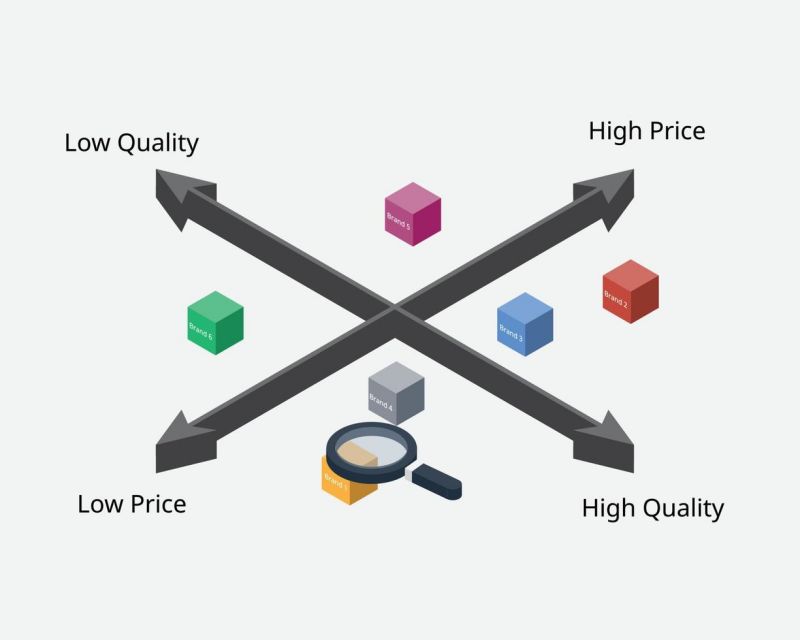9 Mistakes to Avoid When Starting a Business
Imagine devoting months, or even years, and everything you have into your business only to witness it fall apart before your own eyes.
Starting a new company feels like embarking on an unforgettable escapade filled with aspiration and eagerness. But what occurs when the journey takes an unforeseeable turn in the wrong direction?
What if your significant investment falls short of launching the business off the ground?
Almost half of all businesses fail during the initial five years of operation, based on data from the U.S. Bureau of Labor Statistics.
Though this might be an unsettling figure, it should not dishearten you.
Although some are unsuccessful, many entrepreneurs have prospered and expanded their ventures successfully.
Triumphs and failures while in business can appear perplexing. But examining them closely reveals that outcomes frequently relate to several common mistakes.
Those who achieve success typically possess a clear vision, a well-crafted strategy, and the ability to adjust. And those who fail are often guilty of neglecting financials, lacking research, or not having the motivation required.
The good news is that learning from the blunders of others can heighten your likelihood for performing well.
We present to you 9 common mistakes, so that as an entrepreneur hoping to launch a business, you may navigate around these setbacks.
By keeping our tips in mind, you can confidently embark on this exciting venture with solid prospects for prosperity.
1. Not Having a Clear Target Audience
It’s been said that attempting to satisfy everyone satisfies nobody. This concept applies to businesses as well.
Without knowing your intended client base, it’s likely that the product created may not meet their needs and thus go unsold.
Failing to identify your target audience would be akin to attempting to accurately hit a bullseye while being unable to see – odds of success are slim.
That’s why Neil Patel, a seasoned marketer, stresses defining your target audience as the first essential step toward success.
By understanding who your customers are, you can create a service or product that meets their needs, speaks to their interests, and captures their attention.
Let’s say you’re starting a business selling sports equipment. Who is your target audience? Athletes, sports enthusiasts, and gym-goers, right?
By defining your market, you can tailor your marketing efforts to appeal to this group and create a product that speaks directly to their needs.

2. Lacking a Clear Direction
Imagine driving without a clear destination in mind.
While this may be enjoyable initially, eventually you may become tired, frustrated and lost.
Similar to aimless driving, starting a business without a concrete plan can cause one to waste time, money and effort ultimately leading to failure.
Establishing a particular vision along with set goals and the necessary resources is essential in preventing your journey from derailing.
Overall success hinges on being able to understand how these objectives will be achieved, including what resources are necessary.
Don’t allow a lack of direction stop you from achieving your potential; determine where you want to go and put in place efficient strategies to take you there.

3. Taking On Too Much
When launching a business, one may easily become swept up in the excitement and try to take on more than can be effectively managed.
However, this tendency towards multitasking and overextending oneself has been shown through research conducted by Verywell Mind to have an adverse effect on productivity.
Not only does it increase the likelihood of exhaustion and burnout but it also leads to inability to concentrate fully on tasks wherein progress suffers.
The simple fact is that juggling many tasks simultaneously creates a scenario where at least one among them must slip from hand.
To sidestep such issues, it’s recommended to focus on top-priority matters first and outsource work if necessary, taking care to devote attention and effort fully to each responsibility.
Delegating areas of responsibility avoids spreading oneself too thin and helps establish a competent team that bolsters company growth.

4. Failing To Build a Strong Team
Setting out to build your own company is an adventure unlike any other, but it’s not one you want to embark on alone.
Research by the University of Illinois also reinforces the idea that many minds are better than one.
By surrounding yourself with a talented, dedicated, and diverse group of individuals, you can ensure that your company thrives.
Building a team that complements each other’s skills and personalities can bring fresh perspectives and ideas to the table, leading to innovation and increased productivity.
Delegating tasks and other responsibilities to your team members is also essential, allowing each person to shine in their area of expertise.
Not only does this create a more efficient and productive workplace, but it also promotes a positive company culture where team members feel valued and empowered.

5. Not Being Flexible Enough
As an entrepreneur, you may have a clear vision for your business. But it’s also essential to be flexible and adaptable in today’s ever-changing market.
Upwork, a freelance marketplace, stresses that adapting to changes in the market is critical for a business’s success.
Today’s world is unpredictable, and anything can happen at any time.
The COVID pandemic, for example, shifted everything online. It showed how unexpected events can happen anytime.
Businesses must be willing to adapt to sudden changes to survive.
Flexibility doesn’t mean compromising your values or vision. But being open-minded and willing to adjust your strategies to achieve your goals.
6. Spending Too Much Too Soon
As the famous saying goes, “You have to spend money to make money,” but you also have to be smart about how you spend it.
Don’t fall into the trap thinking that more spending necessarily means more success.
It’s essential to prioritize spending and allocate resources wisely.
Avoid the temptation of fancy offices or extravagant marketing campaigns, especially when just starting. Instead, focus on building a strong foundation and establishing a solid customer base.
Remember, success doesn’t happen overnight, so having a long-term perspective is crucial.
Sometimes the best investments are the small ones that build over time. So take your time, evaluate your spending carefully, and remember that a bit of restraint can go a long way.

7. Ignoring Customer Feedback
Ignoring customer feedback is a mistake that can cost businesses dearly.
Your customers are your biggest assets, and their feedback is a valuable resource for improving your product or service. Not listening to them can result in lost opportunities and damage your brand reputation.
Research shows that over 83% of people feel more loyal to brands and businesses that respond to and resolve their complaints.
Taking the time to understand your customers’ pain points and actively seeking feedback can help you improve your business’s performance and stay ahead of the competition.
On the other side, ignoring feedback can lead to negative reviews and a damaged reputation.
Therefore, it is essential to acknowledge and address your customers’ concerns. It shows that you care about their experience and are willing to make changes to improve it.

8. Lack of Demand
Running a business without sufficient market demand is like hosting a party without any guests.
No matter how good the food and music are, it won’t be a hit if no one shows up.
Similarly, businesses can have great ideas or products, but if there is no demand for them, it won’t take off.
A real-life example of this is the Segway, a two-wheeled transportation device that was hyped up to be the next big thing.
Despite being a revolutionary product, it failed because there was not enough demand for it.
The lesson here is that businesses need to do their research and ensure there’s a demand for their product or service before investing time and money into it.
Additionally, businesses should always be adaptable and willing to pivot if they notice a shift in the market demand.
After all, catering to customer demand is crucial to a business’s success.
9. Pricing Products Too High or Too Low
The right price can make all the difference between success and failure for your product.
But how do you find that sweet spot?
Take the example of a small coffee shop. If they charge too much for their lattes, they risk losing customers to cheaper competitors.
But if they charge too little, they might not be able to cover their costs and keep the business running.
Finding the sweet spot takes research, data analysis, and experimentation. It’s a delicate balance that requires consideration of both the market and the costs of doing business.
You can experiment with different price points and gather customer feedback to help you make informed decisions.

Conclusion
We’ve covered some of the most common mistakes in starting an online business. These include neglecting market research, underestimating the importance of branding, and more.
While success takes hard work, dedication, and learning from mistakes, it’s easy to fall into traps.
To improve your odds of avoiding these mistakes and achieving your dreams, stay informed and build a strong base for your business. This can help you navigate challenges, seize opportunities, and stay focused on your goals.
So get out there and start building your dream business with the knowledge and insights we’ve shared today.
